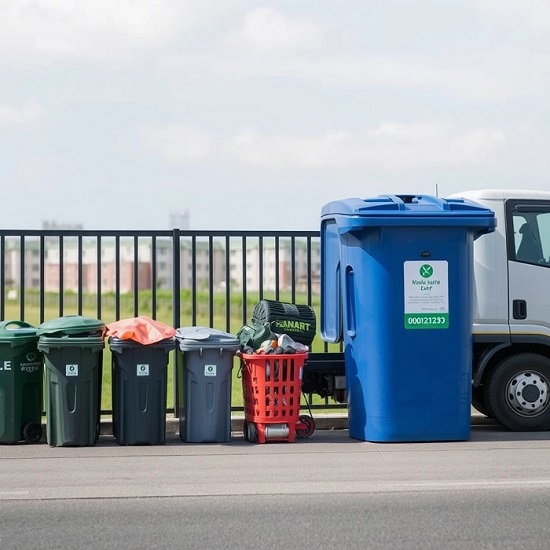Sustainable Textile Chemicals: How Manufacturers Are Reducing Environmental Impact

The textile industry is one of the largest and most impactful sectors globally, contributing significantly to economic development and employment. However, it is also notorious for its environmental footprint, primarily due to the extensive use of chemical substances in fabric production. In recent years, textile chemical manufacturers have taken significant strides toward sustainability by adopting eco-friendly practices and chemicals. This article delves into how these manufacturers are reducing their environmental impact and promoting sustainability within the textile sector.
Understanding the Role of Textile Chemical Manufacturers
Textile chemical manufacturers play a pivotal role in the textile industry by providing a wide array of chemical products essential for fabric processing. These chemicals are used for dyeing, finishing, and imparting specific properties to textiles. While these processes enhance the performance and aesthetic qualities of fabrics, they often involve hazardous substances that can harm the environment if not managed properly.
The good news is that an increasing number of textile chemical manufacturers are committed to sustainability. They are implementing innovative solutions to minimize the adverse effects of chemical usage on the environment. By prioritizing the development and application of sustainable textile chemicals, these manufacturers contribute to a greener textile industry.
Innovations in Sustainable Textile Chemicals
1. Bio-based Chemicals
One of the most significant trends among textile chemical manufacturers is the shift toward bio-based chemicals. These chemicals are derived from renewable biological resources rather than fossil fuels. The use of bio-based chemicals not only reduces dependency on non-renewable resources but also diminishes the overall carbon footprint associated with textile production. Many textile chemical equipment manufacturers are investing in research to develop bio-based alternatives for traditional chemicals, such as dyes and finishing agents, leading to more sustainable manufacturing processes.
2. Reduced Water Consumption
Water scarcity is a pressing global issue, particularly in textile production. Traditional dyeing and finishing processes often consume large volumes of water, leading to environmental degradation. To combat this, textile chemical manufacturers are developing chemicals that require less water for application. Technologies such as digital printing and waterless dyeing processes are emerging, allowing for more efficient use of water. This transition not only conserves water resources but also minimizes wastewater generation, thus reducing the industry’s environmental impact.
3. Non-toxic and Biodegradable Options
As consumers become more environmentally conscious, the demand for non-toxic and biodegradable textile chemicals is on the rise. Textile chemical manufacturers are responding by formulating chemicals that are safer for both the environment and human health. For instance, they are replacing harmful solvents and heavy metals with non-toxic alternatives. Additionally, the development of biodegradable chemicals ensures that any residual chemical components break down naturally, reducing pollution in landfills and water bodies.
4. Sustainable Production Processes
The shift towards sustainability also extends to the production processes of textile chemical manufacturers. Many companies are adopting greener manufacturing practices by implementing closed-loop systems that minimize waste and recycle water. By investing in energy-efficient technologies, manufacturers are also reducing greenhouse gas emissions associated with their production processes. Furthermore, collaboration with textile industry equipment suppliers helps in optimizing machinery and equipment to enhance energy efficiency and reduce waste.
5. Certifications and Standards
To validate their commitment to sustainability, many textile chemical manufacturers are pursuing certifications and adhering to industry standards. Certifications such as OEKO-TEX, GOTS (Global Organic Textile Standard), and bluesign® assure that products meet strict environmental and safety criteria. By aligning with these standards, manufacturers not only enhance their credibility but also appeal to eco-conscious consumers who prioritize sustainability in their purchasing decisions.
The Role of Textile Industry Equipment Suppliers
Textile industry equipment suppliers play a crucial role in facilitating the adoption of sustainable practices among textile chemical manufacturers. These suppliers provide advanced machinery and equipment designed to work efficiently with sustainable textile chemicals. By offering equipment that minimizes waste and energy consumption, they support manufacturers in their efforts to reduce their environmental impact.
For instance, suppliers are now providing dyeing and finishing machines that use less water and energy. Additionally, they offer technology for recycling chemicals and water, enabling manufacturers to implement closed-loop systems effectively. Such collaborations between textile chemical manufacturers and equipment suppliers are essential for driving sustainability throughout the textile supply chain.
The Economic Benefits of Sustainable Practices
While the primary focus of sustainable practices is to reduce environmental impact, they also offer significant economic benefits to textile chemical manufacturers. By investing in sustainable technologies and processes, manufacturers can reduce costs associated with waste management, water usage, and energy consumption. Furthermore, companies that adopt eco-friendly practices are likely to gain a competitive advantage in the marketplace as consumers increasingly seek sustainable products.
In addition, sustainable practices can open new market opportunities. The demand for eco-friendly textiles is growing, with many consumers willing to pay a premium for sustainable products. By positioning themselves as leaders in sustainability, textile chemical manufacturers can attract a broader customer base and foster brand loyalty.
Challenges and Future Directions
Despite the positive strides made by textile chemical manufacturers, challenges remain in the quest for sustainability. The transition to eco-friendly chemicals and processes requires significant investment in research, technology, and training. Furthermore, the lack of regulatory frameworks in some regions can hinder the widespread adoption of sustainable practices.
However, the future looks promising as the industry continues to innovate. Ongoing research and collaboration among manufacturers, equipment suppliers, and regulatory bodies will be crucial in overcoming these challenges. By working together, the textile industry can pave the way for a more sustainable future.
Conclusion
Sustainable textile chemicals are revolutionizing the textile industry, with manufacturers leading the charge to reduce environmental impact. Through the development of bio-based, non-toxic, and biodegradable chemicals, along with the adoption of sustainable production processes, textile chemical manufacturers are making significant strides toward a greener future. Collaborations with textile industry equipment suppliers further enhance these efforts, ensuring that sustainability becomes a cornerstone of the textile supply chain.
As the demand for eco-friendly textiles continues to rise, the commitment of textile chemical manufacturers to sustainability will play a critical role in shaping the industry’s future. By prioritizing sustainable practices, these manufacturers not only contribute to environmental preservation but also unlock new economic opportunities, ultimately benefiting the industry and the planet.











